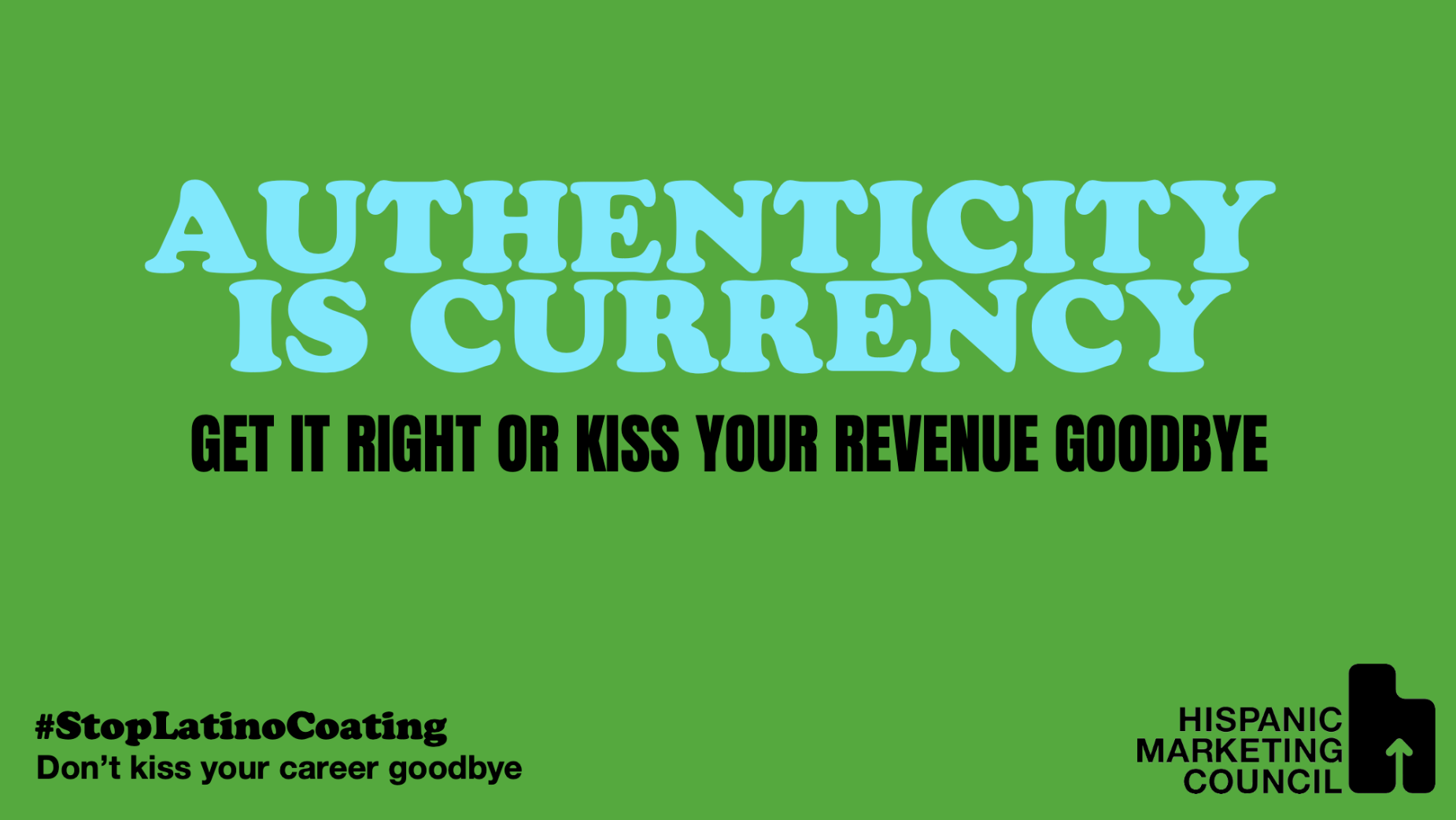
All Inclusive: “Authentic Representation Adds More Flavour to Our National Melting Pot”

ALTERED.LA is fighting for more equal representation and an all-inclusive general market. Over the course of 20 years in the biz, Marcos Cline, ALTERED.LA founder and EP, has seen the power of Latin audiences grow exponentially and is passionate about ensuring this market is authentically and creatively catered to. Representing top-notch award-winning directors, ALTERED.LA believes it's important for Hispanic representation in front and behind the camera and is advocating for clients to pursue this demographic as part of growing their business.
For this new LBB series, ALTERED.LA will be speaking to representatives from the biggest agencies in the industry to see what they too are doing to advocate for more authentic bicultural storytelling, how this will grant the next generation of Hispanic talent a foot in the door and why this will result in greater Latin representation within the General US Market overall.
With a special interest in regional specificity, group creative director Javier San Miguel tells LBB how Sensis LA is embracing audience data in the interest of more accurate Hispanic representation, the importance of staying true to the nuances of consumer segments, and the agency’s involvement in the #StopLatinoCoating movement.
LBB> How does Sensis LA ensure that Hispanic voices are authentically represented in the projects you undertake?
Javier> We’re a culturally mixed bunch at Sensis. When a Hispanic-focused project hits, we assign it to Hispanic (or Hispanic-literate) team members. It’s really just about having the right cultures at the table from the start. We prioritise developing strategy, creative and production in-culture (and in-language) where applicable. So, the choices made by in-culture staff at every stage of the project is informed by their first-person lived experiences. You can’t get more authentic than that.
LBB> How have you seen the demand for Hispanic and bicultural content evolve over the past few years, and how is your agency responding to this?
Javier> A welcome shift I’ve noticed is that some clients have gone from a “we need a Spanish language version of this”, to more of a “we need the Spanish to really feel Chilango, or Caribbean, or another regionally specific voice.” That’s huge. And that’s just for the Spanish language spots. We also see an increased need for culturally relevant winks and nods in English language work, given the evolving demographics.
Savvy clients pay attention to the regional nuances of Hispanic consumer segments. This is driven by more granular audience data, but it’s also driven by increasing numbers of Hispanics on the client side reading data correctly and making more relevant decisions.
LBB> What are some of the biggest challenges Sensis faces when advocating for more Hispanic representation and how do you overcome them?
Javier> By far the biggest obstacle is this mindless attempt to lump all Hispanics in the U.S. into some sort of amorphous, generalised, Spanish-inflected blob that looks, sounds, and thinks alike. At Sensis, we are for more accurate representation. But we’re up against what I call the “Lone Hispanic Ranger.” What I mean by that is when there’s a token Hispanic individual in an otherwise non-Hispanic client team, who’s expected to speak for all Hispanics, from Tijuana to Tierra del Fuego (and Spain) - not to mention those US Latinos that may be generations departed from their country of origin. It’s an impossible position. And it leads to risk-averse, watered-down, and overly generalised Hispanic representation that’s universally inauthentic.
We encourage clients to embrace regional specificity wherever possible. There’s no such thing as “universal Spanish.” Hispanic consumers know they’re being pandered to when actors forcibly suppress their regional accents in a video spot. Same goes for Spanish copy expressions. Everything feels stilted. What’s bad for the actor is terrible for the brand. Smart brands know it’s OK to let our regional origin flags fly. It’s a marker of authenticity. We like each other’s differences, our accents, expressions, etc. I don’t have to be Mexican to appreciate Mexicanisms. Same goes for every other Latin American country of origin. We understand each other even if we don’t all come from the same place.
LBB> Can you discuss any collaborations or partnerships your agency has formed to further the cause of Hispanic representation?
Javier> We’ve helped the Hispanic Marketing Council (HMC) with their current “Stop Latino Coating” campaign. It’s a bold move, targeting CMOs directly, but we believe it’s a necessary conversation that goes above and beyond a moral argument. It’s just good business.

LBB> In what ways do you believe increased Hispanic representation can contribute to societal change and cultural enrichment?
Javier> I’m fascinated by the ways in which Latino culture insinuates itself into mainstream U.S. consumer activity over time, through repeated exposure and evolution. Chips and salsa are now as American as apple pie - never mind guacamole for the Super Bowl! I see more Spanglish advertising on network, cable and streaming than ever before - adding to the ever-evolving cultural fabric of the U.S. I love the dynamism of it. The Great American Experiment never stops. That’s what makes it so special. Hispanics are an indelible part. Increased authentic representation just keeps adding more depth of flavour to our national melting pot.
LBB> What advice would you give to young Hispanic talent looking to break into the industry?
Javier> Ok, two things: 1) embrace your regional heritage; and 2) master your English as best you can. (And, no, one doesn’t cancel out the other.) Unconscious bias is a thing with some Anglo clients. You can be the most gifted talent out there, but if your accent gets in the way of your ideas, you’ll have a tough time selling them. No one dominates a conference room better than a Hispanic in full bilingual command. That’s the ultimate bicultural flex.
LBB> Can you share a personal anecdote or experience that highlights why this cause is important to you?
Javier> Many years ago, when I was freelance copywriting in LA, I was hired by one of the major broadcast networks for a last-minute adaptation of some of their Anglo on-air promos into Spanish. This was long before Google translate (I know, I’m dating myself). It was a tough job because much of the content featured plays-on-word that wouldn’t translate literally. But I worked very hard (and very late into the night) to come up with workable Spanish language alternatives, each with a carefully crafted reverse translation into English.
The next morning, I presented my work, in-person, to an English-only speaking executive. He paid me full attention, but just couldn’t evaluate my work in-language. No one else in his department could either. So, he motions to one of the Hispanic cleaning staff in a hallway to come listen to my copy and see if it makes sense. I don’t know who was more uncomfortable, me or the janitor. I would not wish that experience on anyone.













